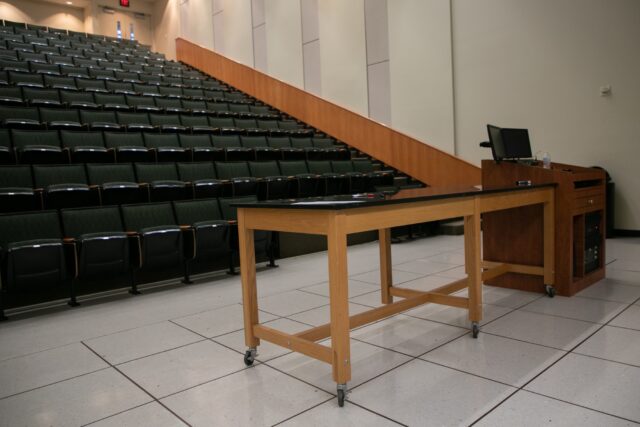By Caitlyn Meisner | Copy Editor
A federal judge dismissed a tuition refund lawsuit against Baylor on Saturday, ruling in favor of the university after a nearly 3-year long battle in the courts.
U.S. District Judge David Counts wrote the opinion for the case, which was released on March 11. He said Baylor was protected under the Pandemic Liability Protection Act signed into law in June 2021 by Gov. Greg Abbott.
The PLPA shields educational institutions like Baylor from monetary liability when it decides to move to remote learning in response to the COVID-19 pandemic, the opinion said.
The initial class action lawsuit was filed in June 2020 by then-student Allison King. She filed the original suit against Baylor for breach of the Financial Responsibility Agreement contract in the spring of 2020 when the university moved classes online in light of the COVID-19 pandemic.
The main question passed down by the Fifth Circuit Court of Appeals was to consider the interpretation of “educational services” presented by both Baylor and King and another complaint made by Joshua Roop, another former Baylor student.
King and Roop said these services mean in-person and on-campus instruction; this means that when Baylor moved to online classes in March 2020, they breached the FRA.
King contends she is not arguing a difference between the quality of online and in-person instruction but said there is a difference in price and students should not have had to pay in-person tuition for an online experience.
The original suit was filed, then dismissed, and later reinstated because of ambiguity over the definition of the term “educational services” in the FRA students signed when enrolling each semester.
Counts said in the 26-page ruling because there had not been a final judgment, the PLPA still applied to the lawsuit. Also, because the FRA does not specifically mention any monetary relief for those who file a claim, the court said there was no such “contractual obligation” to impair.
Baylor released a statement on the decision made by the courts.
“We are pleased the district court once again dismissed the claims in this lawsuit,” the statement said. “Baylor, like almost every other university in America, in moving classes online during the second half of the Spring 2020 semester, acted on the rapidly evolving information available to continue providing educational services in a time of global pandemic and under the public health orders in place so students could complete their courses in a safe and healthy manner.”
The Baylor Lariat attempted to reach Allison King’s lawyers for comment but were unable to do so Tuesday evening.
Hundreds of students across the U.S. have filed lawsuits similar to King and Ropp’s due to the pandemic. Some cases are asking for tuition reimbursements or refunds due to the switch from in-person classes to remote learning.
In January, Harvard University settled their case with a group of students and in September 2022, Brown University also settled for $1.5 million to students. Dozens of cases remain in the court systems against other universities, such as Purdue, Syracuse, University of Kansas and Pepperdine.



